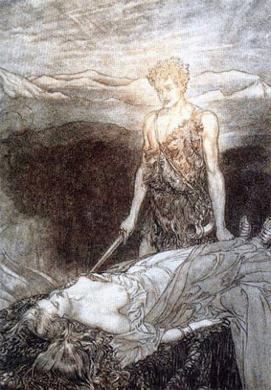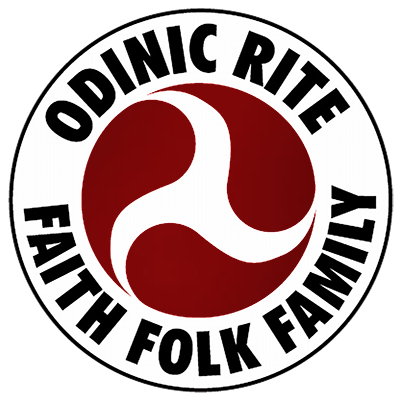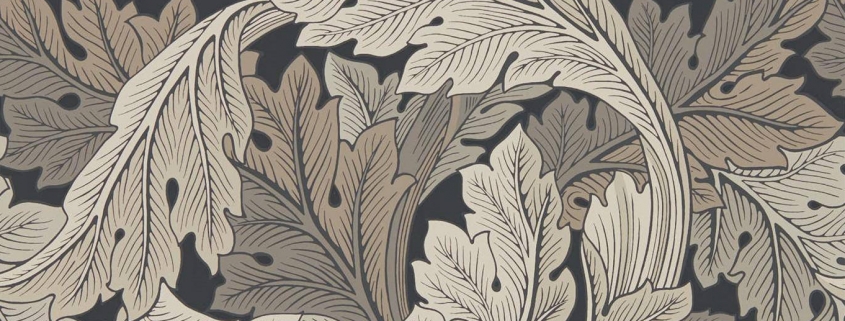William Morris – Proto Odinist
by Hervor OR
first published in OR Briefing, Number 97, Fallow 1990
William Morris (1834 – 1896) was born and grew up at the height of the ‘Age of Reason’, and probably considered himself an atheist because he rejected the Christian concept of a deity sundered from mankind. The perceptive person considering his work will find, however, that his prose and poetry, his designs and paintings – his world-view – all overflow with an irrepressible love for his people and their Gods. From his joyful view of life shines a dauntless courage, and a hatred of tyranny that is far removed from the soft-headed liberalism of today.
He was no ‘universalist’ in the religious sense, but can very truly be called a ‘universal man’. He was no mere theoretician, but lived his beliefs – a poet, author, painter, craftsman and inventor – he infused his work with the hopes for the ‘Earthly Paradise’ he strove for. William Morris was a socialist. This word has come to be synonymous with the state slavery of communism, but in his time, before the ‘First International’ had been taken over and mis-directed by Marxism, socialism was truly a movement struggling to regain a lost freedom. For William Morris the ‘workers’ ownership of the means of production meant exactly that – that the shoemaker should run his own last and his own workshop, that the producers of food should own their own land.
He advocated co-operative workshops, owned by those who worked in them. He called for a resurgence of pride in craftsmanship, for a society based on individual excellence and achievement – a climbing up, not a levelling down – a simple way of life, its structure growing from the old ‘Folk-Moot’, which would engender true culture and a natural way of life.
His work is a remarkable example of Odinist spirit forcing its way through the grey mists of Judeo/Christianity. He looked upon this alien creed, indeed, as a fall from innocence. In his book, ‘The Well at the World’s End’ he calls the nation of pagans encountered by his hero and heroine the ‘Innocent Folk’ – innocent in that they were not befouled by the greed and perversity of the Christian world.
Truly, William Morris was a ‘fore-ganger’ of the resurgent Odinic Faith.

The quotation which follows is taken from ‘The Story of Sigurd the Volsung and the Fall of the Niebelungs’, an epic rendering of the Volsung Saga, by William Morris.
Sigurd has won through the flames to Brynhild, and she has just awakened –
‘But she said: Where is Odin, that laid me here alow?
Long lasteth the grief of the world, and manfolk’s tangled woe!”
“He dwelleth above,” said Sigurd, “but I on the earth abide,
And I came from the Glittering Heath, the waves of fire to ride.”
But therewith the sun rose upward, and lightened all the earth,
And the light flashed up to the heavens from the rims of the glorious girth.
But they twain rose together, and with both palms outspread,
And bathed in the light returning, she cried aloud and said:
“All hail, O Day and thy Sons, and thy kin of the coloured things!
Hail following Night, and thy Daughter, that leadeth thy wavering wings!
Look down with unagnry eyes on us today alive,
And give us the hearts victorious, and the gain for which we strive!
All hail, ye Lords of God-home, and ye Queens of the House of Gold,
Hail thou dear Earth that bearest, and thou wealth of field and fold!
Give us, your noble children, the glory of wisdom and speech,
And the hearts and the hands of healing, and mouths and hands that teach!”



